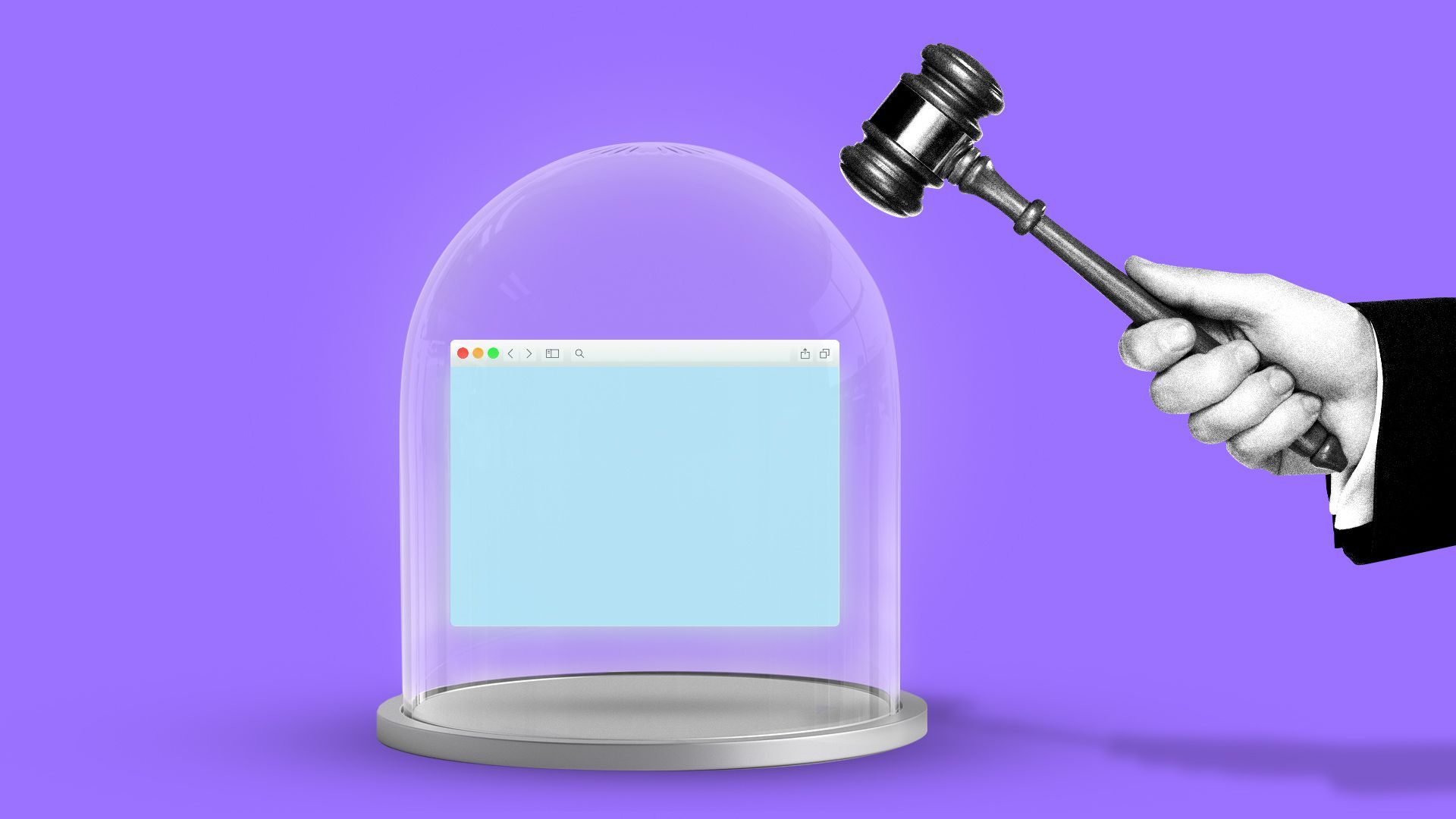Zuckerberg suggests how to tweak tech's liability shield
Add Axios as your preferred source to
see more of our stories on Google.

Illustration: Aïda Amer/Axios
Facebook CEO Mark Zuckerberg will tell lawmakers his plan for "thoughtful reform" of a key tech liability shield rests on requiring best practices for treating illegal content online.
Why it matters: Tech giants are starting to embrace changes to the foundational law that shields platforms from liability from content users post as lawmakers from both parties threaten it.
Driving the news: In written testimony ahead of the House hearing Thursday with Google, Twitter and Facebook CEOs, Zuckerberg suggested making Section 230 protections for certain types of unlawful content conditional on platforms' ability to meet best practices to fight the spread of the content.
What he's saying: "Instead of being granted immunity, platforms should be required to demonstrate that they have systems in place for identifying unlawful content and removing it," Zuckerberg wrote in the testimony.
- "Platforms should not be held liable if a particular piece of content evades its detection—that would be impractical for platforms with billions of posts per day—but they should be required to have adequate systems in place to address unlawful content."
How it works: The detection system would be proportionate to platform size, with practices defined by a third party.
- The best practices would not include "unrelated issues" like encryption or privacy changes, he notes.
- He also suggested Congress bring more transparency and oversight on how companies make and enforce rules about content that is harmful but still legal.
The big picture: The hearing Thursday will focus on social media companies' role in promoting misinformation and extremism, with the chairman of the House Energy & Commerce Committee telling Axios he wants to take aim at platforms' financial incentive to amplify harmful content.
Our thought bubble: The CEOs of the biggest social media platforms have been subtly hinting they'd accept some sort of modest Section 230 reform since last year, a major change from a few years ago when any change was considered untenable.
- The thinking on that began to break when a bill that narrowed Section 230 protections in an attempt to curb online sex trafficking passed in 2018. The same trio of CEOs told the Senate Commerce Committee in October 2020 to be extremely careful with any proposed changes to Section 230.
- The changes Zuckerberg cite have shades of two Section 230 related bills, the EARN IT Act and the PACT Act.
The other side: Smaller tech companies and online sites will balk at any Section 230 changes, even if considered narrow. The biggest companies have the greatest ability to respond and adapt to legislation.

